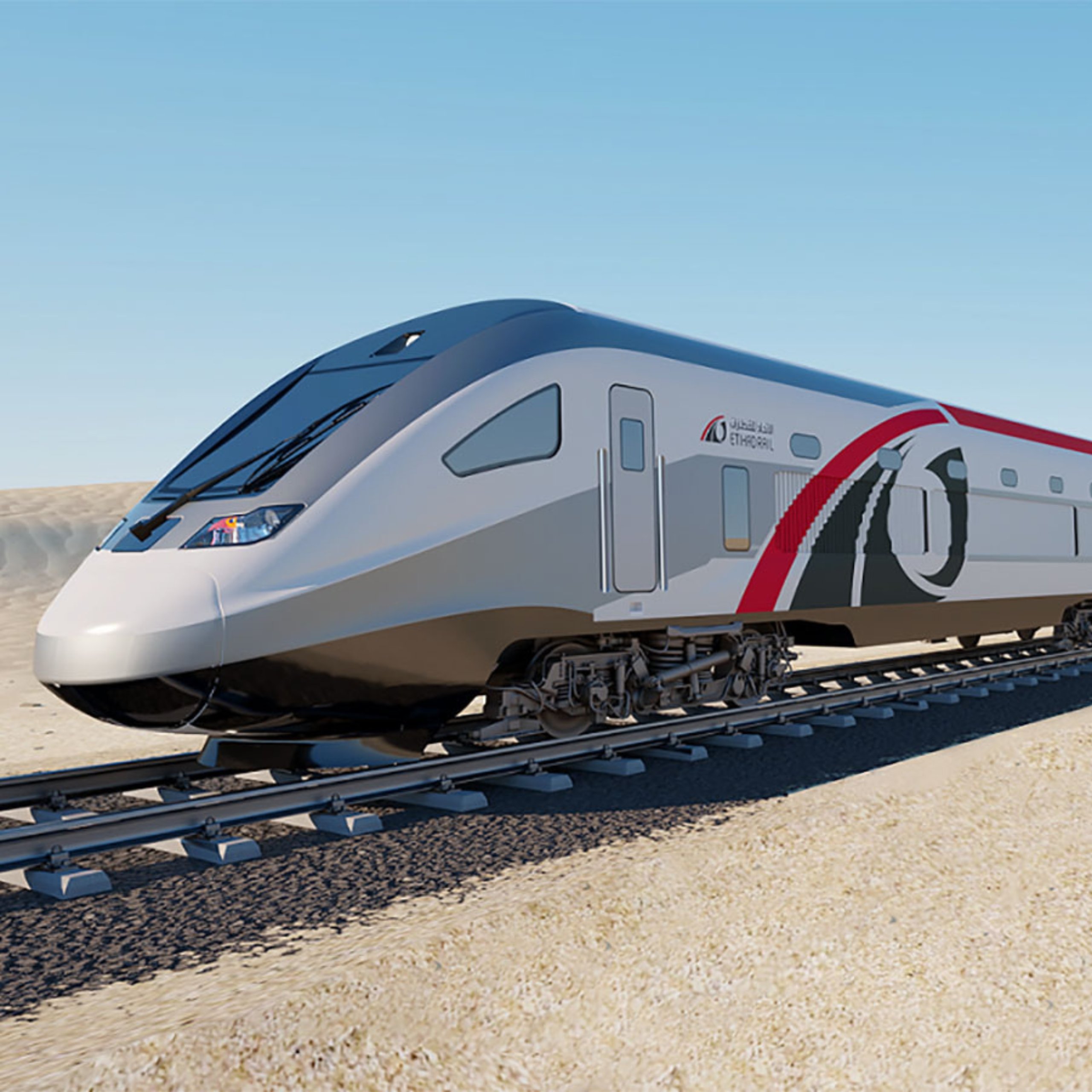Etihad Rail, the UAE’s railway service, is gaining stride as it ventures into the second phase of construction: building passenger railway stations for travelers in the UAE. Railway construction in key locations in and around Dubai, Abu Dhabi, and Fujairah has confirmed conventional-speed main passenger stations in these emirates. These stations will be constructed by China Railway International Group, which employs the design expertise of China Southwest Architectural Design & Research Institute (CSWADI) and local design consultants Jouzy Consulting Engineers.
Stations in Dubai, Abu Dhabi, and Fujairah, together with the Sharjah University Station, will form the foundational passenger route for the conventional speed railway in the UAE. The passenger carrier is expected to travel at speeds up to 200 km/h along the existing 1,200 km Etihad Rail freight track running between Al-Sila in the west and Fujairah in the east.
Unlike the Fujairah station that will utilize the pre-existing freight track, the Dubai and Abu Dhabi stations will lie on two spur lines specifically built to serve them. The Dubai station is expected to emerge behind the Jumeirah Golf Estates metro station on the Red Line. The Abu Dhabi station will lie along the pipeline corridor separating Mussafah Industrial Area and Mohammed Bin Zayed City, between Dalma Mall and Musaffah bus station adjacent to Phoenix Hospital. The two spur lines for Dubai and Abu Dhabi will be constructed by Etihad Rail subsidiary National Infrastructure Construction Company (NICC) and its subcontractor National Projects & Construction (NPC).
The spur line that connects the Sharjah University Station and the main line is actively under construction by a local firm, Tristar Engineering & Construction. According to sources, the construction of several smaller stations will be commissioned on a rolling basis to connect these landmark stations in the four emirates. Though Etihad Rail has not officially revealed details on the construction of these passenger lines, widespread construction across the nation have confirmed recent speculations on the same. The construction is expected to last 18–24 months, based on preliminary logistical estimates.
Our integrated services deliver advanced transportation and logistics solutions, making it easier to access imported and exported goods. We also offer storage and distribution services, and we are dedicated to meeting all our clients’ needs and enhancing supply chain efficiency.… pic.twitter.com/UtyeqfvagE
— Etihad Rail (@Etihad_Rail) August 20, 2024
These developments serve as a precursor to the high-speed rail line that will connect Abu Dhabi and Dubai. In 2021, the UAE first announced an ambitious budget of AED 50 billion to construct an “integrated railway network [starting in the UAE] for cargo and passenger travel.” The Etihad Rail is currently operational for freight transportation and distribution, connecting four major ports and seven logistical hubs.






